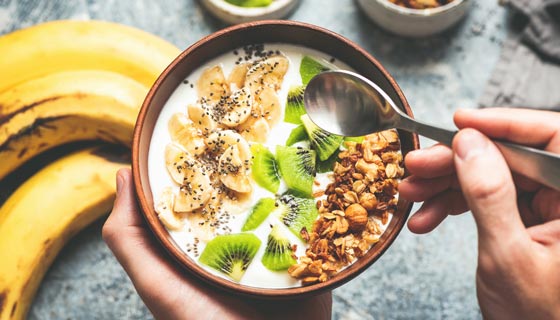The Benefits of a Gluten-Free Diet for Non-Celiacs
When it comes to dietary choices, the gluten-free diet has gained significant popularity in recent years. Originally designed for individuals with celiac disease, a condition where the immune system reacts negatively to gluten, this diet has also attracted non-celiacs who seek to improve their overall well-being. In this article, we will explore the benefits of a gluten-free diet for non-celiacs and shed light on why it has become a preferred choice for many.
Reduced Digestive Discomfort
One of the primary benefits of adopting a gluten-free diet for non-celiacs is the potential reduction in digestive discomfort. Gluten, a protein found in wheat, barley, and rye, can be difficult to digest for some individuals. By eliminating gluten from their diet, non-celiacs may experience relief from symptoms such as bloating, gas, and abdominal pain.
Increased Energy Levels
Many individuals who have switched to a gluten-free diet report increased energy levels as a significant benefit. Gluten can cause inflammation in the body, leading to feelings of fatigue and sluggishness. By removing gluten from their diet, non-celiacs may experience a boost in energy, allowing them to be more productive and active throughout the day.
Improved Skin Health
Another advantage of a gluten-free diet for non-celiacs is the potential improvement in skin health. Some individuals may have a sensitivity to gluten, which can manifest as various skin conditions, including eczema, psoriasis, and acne. By eliminating gluten from their diet, non-celiacs with gluten sensitivity may notice a reduction in symptoms and an overall improvement in their skin’s appearance and health.
Weight Management
For individuals looking to manage their weight, a gluten-free diet can be an effective tool. Many gluten-containing products, such as bread, pasta, and baked goods, are often high in calories and low in nutritional value. By opting for gluten-free alternatives, non-celiacs can make healthier food choices, potentially leading to weight loss or maintenance.
Enhanced Nutritional Variety
Contrary to popular belief, a gluten-free diet can offer a wider range of nutritional options. By eliminating gluten-containing grains, non-celiacs are encouraged to explore alternative grains and cereals that are often nutrient-dense, such as quinoa, amaranth, and buckwheat. These alternatives can provide essential vitamins, minerals, and fiber, contributing to a well-balanced and diverse diet.

In summary, while a gluten-free diet is essential for individuals with celiac disease, it can also bring several benefits to non-celiacs. From reduced digestive discomfort to increased energy levels, improved skin health, weight management, and enhanced nutritional variety, the advantages of adopting a gluten-free diet are worth considering. However, it is crucial to consult with a healthcare professional or registered dietitian before making any significant dietary changes to ensure proper nutrition and overall well-being.
Frequently Asked Questions
1. What is a gluten-free diet?
A gluten-free diet is a diet that excludes the protein gluten, which is found in wheat, barley, and rye.
2. Can non-celiacs benefit from a gluten-free diet?
Yes, some non-celiacs may benefit from a gluten-free diet, as it can help reduce inflammation and improve digestion.
3. Are there any health benefits of a gluten-free diet for non-celiacs?
While research is limited, some non-celiacs have reported benefits such as increased energy levels, improved skin health, and better digestion.
4. Can a gluten-free diet help with weight loss for non-celiacs?
A gluten-free diet alone may not lead to weight loss for non-celiacs. However, it can indirectly support weight loss by promoting the consumption of whole, unprocessed foods.
5. Are there any potential drawbacks of a gluten-free diet for non-celiacs?
Eliminating gluten from the diet may lead to a reduction in fiber intake and nutrient deficiencies if not properly planned.
6. How can I ensure I get enough nutrients on a gluten-free diet?
It is important to consume a variety of gluten-free whole grains, fruits, vegetables, lean proteins, and dairy products (if tolerated) to ensure a balanced nutrient intake.
7. Is a gluten-free diet expensive for non-celiacs?
Gluten-free products can be more expensive than their gluten-containing counterparts. However, focusing on naturally gluten-free foods like fruits, vegetables, and grains can help keep costs down.
8. Can a gluten-free diet improve gut health for non-celiacs?
For individuals with gluten sensitivity or intolerance, a gluten-free diet may help improve gut health by reducing symptoms like bloating, gas, and diarrhea.
9. How long does it take to notice any benefits of a gluten-free diet for non-celiacs?
The time it takes to notice benefits can vary among individuals. Some may experience improvements within a few days, while others may take weeks or even months.
10. Should I start a gluten-free diet without consulting a healthcare professional?
It is recommended to consult a healthcare professional or a registered dietitian before starting a gluten-free diet, especially if you have any underlying health conditions or concerns.




